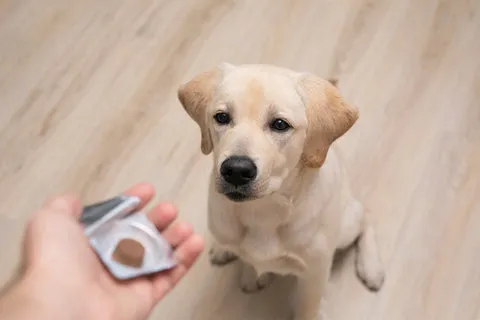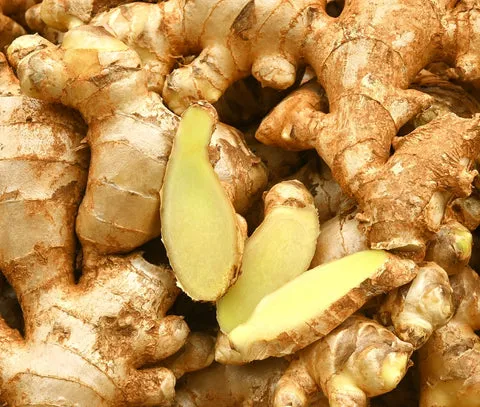Does your beloved canine companion sometimes clear a room with their unexpected gas? You’re certainly not alone! Many dog parents grapple with the discomfort and occasional embarrassment caused by a gassy pup. Beyond the immediate unpleasantness, understanding the underlying causes of gas in dogs and knowing how to effectively address it is crucial for ensuring your furry friend lives a happier, more comfortable life. Finding the Best Gas Medicine For Dogs often involves a combination of dietary adjustments, lifestyle changes, and sometimes, targeted supplements or veterinarian-recommended treatments. This comprehensive guide will explore common reasons for excessive canine flatulence, discuss effective strategies for relief, and outline when it’s time to consult your vet about your dog’s persistent gas issues.
For pet owners concerned about various aspects of their dog’s health, understanding preventative care is key. Just as addressing gas requires attention to diet and digestion, ensuring your puppy’s overall internal health, including protection against parasites, is vital. For example, knowing about effective [deworming tablets for puppies](https://dogcarestory.com/deworming-tab lets-for-puppies/) can be a crucial step in maintaining their well-being from a young age, preventing issues that might contribute to digestive upset.
What Causes Dogs to Have Gas?
Unraveling the reasons behind your dog’s gas is the foundational step toward finding effective canine gas remedies. A variety of factors can contribute to excessive flatulence in dogs, ranging from their diet to specific eating habits and broader health conditions. By pinpointing and addressing these contributing factors, you can significantly help reduce your dog’s gas and enhance their overall digestive comfort.
Upset Stomach or Digestive Issues
One of the most frequent culprits behind gas in dogs is an upset stomach or a broader digestive imbalance. When a dog’s gastrointestinal system is not functioning optimally, it can lead to increased gas production. This imbalance might stem from several sources, including an unhealthy gut microbiome, food sensitivities, or simply consuming something that doesn’t agree with their system. If your dog frequently experiences stomach upset, a thorough review of their diet and digestive health is highly recommended. Conditions that cause stomach upset, such as inflammatory bowel disease or even simple indigestion, can manifest as excessive gas. In cases where stomach upset also leads to nausea or vomiting, your veterinarian might consider medications like cerenia dog medicine to manage these specific symptoms, although it’s not a direct gas medicine.
Change in Diet
A sudden or drastic change in your dog’s diet is a common trigger for gas. When you introduce new food, your dog’s digestive system requires time to adapt to the novel ingredients and nutrient profiles. Abrupt transitions can disrupt the delicate balance of beneficial bacteria in the gut, leading to inefficient digestion and a subsequent increase in gas production. To prevent this, always transition to new foods gradually, typically over 7-10 days, by mixing increasing amounts of the new food with decreasing amounts of the old.
Allergies and Food Sensitivities
Food allergies or sensitivities are another significant cause of dog gas. Common allergens such as beef, dairy, wheat, soy, and chicken can provoke digestive distress and excessive gas in sensitive dogs. Unlike a full-blown allergy, sensitivities might cause symptoms like gas, bloating, and diarrhea without triggering a severe immune response. If you suspect your dog’s flatulence is linked to a specific dietary component, consulting with a veterinarian can help identify the allergen through an elimination diet or other diagnostic methods, allowing you to adjust your dog’s diet accordingly.
Eating Habits or Lifestyle Issues
Sometimes, the way your dog eats or their general lifestyle can contribute to gas. Dogs that consume their meals too quickly tend to swallow a considerable amount of air, which then builds up in the digestive tract and is eventually expelled as gas. Additionally, a lack of regular exercise or a sedentary lifestyle can slow down the digestive process, allowing gas to accumulate. Encouraging your dog to eat slowly through puzzle feeders or slow-feeder bowls and ensuring they receive ample physical activity can help mitigate these issues.
 A person offering a gas relief supplement to a dog
A person offering a gas relief supplement to a dog
Effective Strategies for Dog Gas Relief
Finding effective gas relief for dogs can profoundly impact their comfort and the overall atmosphere of your home. Addressing the root causes and implementing targeted strategies are key to managing and significantly reducing gas in your furry friend. Here are some proven methods for providing comfort and relief, helping your dog stay happy, healthy, and less gassy.
Improve Diet Quality and Digestibility
One of the most impactful ways to relieve gas in dogs is to critically evaluate and improve their diet. Feeding your dog a high-quality, easily digestible food can dramatically reduce gas production. Look for dog foods with simple, natural ingredients and avoid those that contain artificial additives, excessive fillers, or known allergens. Ingredients like beet pulp, peas, or certain legumes can sometimes contribute to gas in sensitive dogs. In some cases, your vet might recommend a limited ingredient diet or a hydrolyzed protein diet to rule out food sensitivities. For dogs experiencing discomfort, even if it’s not related to gas, understanding various canine medications and their uses, such as metacam dog medicine for pain and inflammation, highlights the importance of discussing all dietary and health changes with your vet.
Support Digestion & Anal Gland Health
Optimal digestion is fundamental for producing healthy, solid, and regularly formed stools, which in turn supports consistent anal gland expression. Digestive enzymes and probiotics are excellent supplements that can aid in breaking down food more efficiently, thereby reducing gas and promoting better stool quality. Probiotics introduce beneficial bacteria to the gut, helping to maintain a balanced microbiome essential for healthy digestion. Regularly supporting anal gland health and, when necessary, having your dog’s anal glands expressed by a professional, can prevent issues that might indirectly impact digestive comfort.
Encourage Regular Exercise
Regular physical activity is not only crucial for a dog’s overall health and well-being but also plays a vital role in reducing gas. Exercise helps to stimulate gut motility, which is the movement of food through the digestive tract, and prevents gas from accumulating. Make sure your dog gets plenty of opportunities to run, play, and engage in activities that keep their digestive system active and efficient. Even a brisk walk after a meal can help move gas through the system more effectively.
 Closeup of ginger pieces, a natural home remedy for canine gas
Closeup of ginger pieces, a natural home remedy for canine gas
Home Remedies and Over-the-Counter Options for Dog Gas
When seeking canine gas remedies, several home treatments and carefully considered over-the-counter options can provide significant relief. These can be part of the best gas medicine for dogs, especially for mild to moderate cases.
Adding a small amount of plain, unsweetened yogurt (ensure it contains live and active cultures) to your dog’s diet can introduce beneficial probiotics to their gut, thereby improving digestion and reducing gas. Ginger, widely recognized for its anti-inflammatory and anti-nausea properties, can help soothe an upset stomach and effectively reduce gas. It can be offered in small amounts, either fresh or as a supplement, after consulting your vet. Additionally, activated charcoal supplements are known for their ability to absorb gas and toxins within the digestive tract, offering quick relief. Daily probiotics for dogs can also significantly contribute to maintaining a healthy digestive tract and fostering a more balanced gut microbiome, which inherently should lead to fewer instances of excessive gas.
Regarding over-the-counter medications like Gas-X® (simethicone) for dogs, it is absolutely crucial to consult with your veterinarian before administering any human medication to your pet. While simethicone is generally considered safe for dogs in appropriate doses, a vet can confirm it’s suitable for your specific pet’s condition and help you determine the correct dosage. Other over-the-counter treatments are available for various canine health issues, such as over the counter treatment for lyme disease in dogs, but these are entirely different medications and should not be confused with gas relief options. Always prioritize professional veterinary advice to ensure the safety and efficacy of any medication you give your dog.
Ultimately, the most effective approach for finding the best gas medicine for dogs is often a tailored combination of dietary management, appropriate supplements, and natural remedies, all developed in consultation with your veterinarian to suit your dog’s unique needs.
Is a Dog Having Gas Dangerous for Their Health?
While gas in dogs is typically more of an inconvenience than a serious health threat, it can occasionally signal underlying problems that require veterinary attention. Chronic or severe gas, especially when accompanied by other symptoms, may indicate digestive disorders, internal infections, or even more serious conditions like gastrointestinal blockages or bloat (gastric dilatation-volvulus or GDV), which is a life-threatening emergency. If your dog’s gas is accompanied by symptoms such as vomiting, diarrhea, loss of appetite, lethargy, abdominal pain, or a distended abdomen, it is imperative to seek immediate veterinary advice.
When to Consult a Vet About Dog Gas Relief
If you find yourself asking, “My dog has bad gas, what can I give him?”, and home remedies or dietary adjustments don’t seem to be providing adequate relief, it’s definitely time to collaborate with a veterinarian. Persistent gas, particularly when coupled with other worrying symptoms, warrants a professional evaluation. Your vet can perform a thorough examination, conduct diagnostic tests to pinpoint the underlying cause (such as blood tests, fecal analysis, or imaging), and recommend the most appropriate and effective treatment options or prescription medication for your dog. For proactive dog care, remember to consider all aspects of their health, including protection against external parasites, which is why resources on subjects like the best flea tick and mosquito repellent for dogs are also important for overall well-being.
Dealing with a gassy dog can be challenging for both you and your pet, but understanding the various causes and implementing effective strategies for gas relief can make a significant positive difference. By optimizing your dog’s diet, ensuring regular exercise, and thoughtfully incorporating natural remedies and vet-approved over-the-counter options, you can help your dog feel more comfortable and reduce the frequency of embarrassing gas episodes. Always diligently monitor your pet’s health and do not hesitate to consult a veterinarian when necessary to safeguard your dog’s continued well-being.
